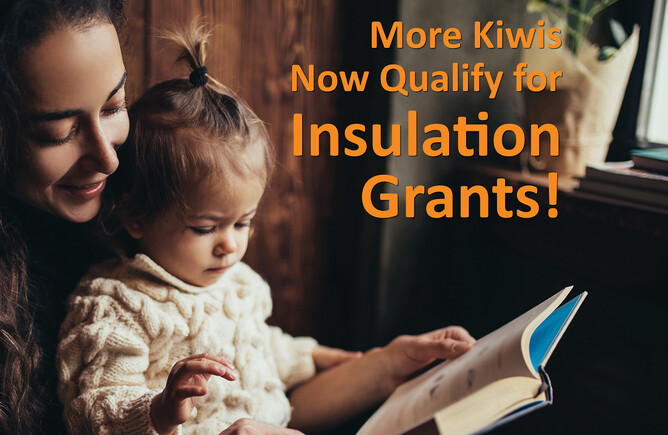In Aotearoa, a warm, dry home isn’t a luxury—it’s essential for health, comfort, and affordability. The Warmer Kiwi Homes Programme has been helping homeowners make that a reality—and now, even more New Zealanders stand to benefit.
What’s New (August 2025)
As of 5 August 2025, EECA has broadened eligibility for insulation grants, adding up to 300,000 more homes—including many middle-income households—to the programme. While low-income households continue to receive generous 80% or 90% grants, the updated scheme now also offers 50% grants to qualifying middle-income households. To date, over 170,000 home retrofits have been completed, delivering healthier spaces for Kiwis across the country—and insured annual energy savings of around $340.
Who Qualifies – And What’s Covered?
To be eligible, you must:
Own and live in a home built before 2008
Hold a Community Services Card, SuperGold Combo Card, or live in a low-to-middle income area
Grants Available:
Insulation:
90% Insulation Funding
If you live in Deprivation Zones 9 or 10, or if you hold a Community Services Card80% Insulation Funding
If you live in Deprivation Zone 850% Insulation Funding
If you live in Deprivation Zones 5, 6, or 7In many cases, additional funding may be available to increase your total insulation funding even further.
Heating:
Up to 90% off approved efficient heaters
(heat pumps or wood/pellet burners), capped at $3,450 (incl. GST).
How It Works:
Phone Easy Insulation to check your eligibility. 0800 327 946.
If eligible, you’ll receive a quote from us.
Once you accept, installation is scheduled—and soon, you'll enjoy the comfort!
Evidence That It Works
According to an EECA-commissioned evaluation by Motu Research, homes that received heat pumps through the programme were warmer, drier, and experienced lower electricity bills. These outcomes bolster the case that WKH isn’t just well-intentioned—it’s effective.
What This Means for You (and Us)
At EasyInsulation, we’re excited—this expansion means even more homeowners can access funding and get professional, streamlined help. Whether you're newly eligible or renewing your interest, we guide you through eligibility checks, approved installations, transparent pricing, and help you navigate extra funding where available.
Ready to Start?
Don’t wait—reach out to us now to find out if your home qualifies: warmth, savings, and peace of mind are within reach. 0800 327 946.
📝 Sources & Credits
This blog was informed by the following sources:
EECA – More households to benefit from Warmer Kiwi Homes upgrades (Aug 2025)
Stuff.co.nz – Warmer Homes grants expanded, some low-income support scaled back
The Post – 300,000 more homes eligible for insulation grants
YouTube – Hon. Simon Watts: Warmer Kiwi Homes expansion announcement
Instagram Reel – EECA Announcement
Instagram Reel – Warmer Kiwi Homes Promo
Motu Research – Evaluation of Warmer Kiwi Homes Programme
FAQs
Who is eligible for the Warmer Kiwi Homes grants?
To qualify for the insulation grant, you must:
Be the homeowner and live in the house (owner-occupier).
Own a home built before 2008 without existing ceiling and/or underfloor insulation. If you've previously received a grant for a former home, you can still apply for your current one.
Either hold a Community Services Card or SuperGold Combo card, or live in a low- or middle-income area as defined by New Zealand Deprivation Zones (5–10).
What funding is available for insulation?
Grants vary depending on zone or card status:
90 % off if you hold a Community Services or SuperGold Combo card, or live in Deprivation Zones 9 or 10.*
80 % off if you live in Deprivation Zone 8.*
50 % off for those in Deprivation Zones 5, 6, or 7.* This is part of the August 5, 2025 expansion that added up to 300,000 extra homes to the scheme.
*Eligibility criteria, funding availability and conditions apply.
How do I check if my home qualifies?
Fill in this form (Click Here) or
Call Us! 0800 327 946 – obligation free.
Are rentals or holiday homes eligible?
No. The grants are only available for your primary home—owner‑occupied houses. Rental properties and alternative dwellings like baches or Airbnb units are excluded.



